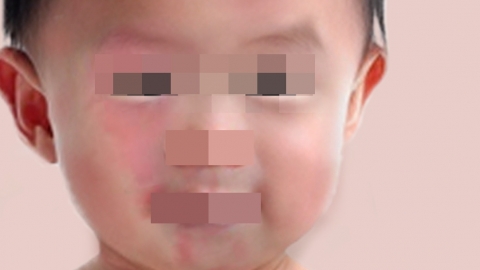What should I do if I have milk eczema?
Milk rash usually refers to infantile eczema. In general, infantile eczema may be caused by incomplete skin barrier function, unsuitable environmental temperature and humidity, food allergies, contact allergies, or secondary bacterial infections. It is recommended to seek medical attention promptly, identify the underlying cause, and then improve the condition under a doctor's guidance through general management, medication, and other treatments. Specific analyses are as follows:

1. Incomplete skin barrier function: Infants have thin stratum corneum, making them prone to water loss and vulnerable to external irritants, which can easily trigger eczema, manifesting as dry skin and red patches. Gently wash the affected areas with lukewarm water daily, keeping the water temperature between 32–38°C. After washing, promptly apply a baby-specific moisturizer to maintain skin hydration and strengthen the skin’s barrier function.
2. Unsuitable environmental temperature and humidity: Excessive heat, sweating, or overly dry environments can irritate an infant’s skin and worsen eczema symptoms. Maintain indoor temperature at 22–25°C and humidity at 50%–60%. Dress infants in loose, breathable cotton clothing, avoid overdressing to prevent sweating, and minimize skin friction and heat buildup.
3. Food allergy triggers: Allergies to foods such as cow's milk protein, eggs, or seafood may trigger or exacerbate eczema, often accompanied by diarrhea and vomiting. Under medical guidance, identify potential allergens and temporarily discontinue consumption of suspected allergenic foods.
4. Contact allergies: Exposure to synthetic fabrics, irritating detergents, or fragrances in baby skincare products may induce eczema, causing red rashes and itching. Immediately discontinue use of suspected irritants, choose fragrance-free, non-irritating baby hygiene products, and thoroughly rinse clothes after washing.
5. Secondary bacterial infection: Broken eczema lesions are susceptible to infection by bacteria such as *Staphylococcus aureus*, leading to redness, swelling, and oozing, worsening discomfort. Patients should follow medical advice and apply topical medications such as mupirocin ointment, erythromycin ointment, or fusidic acid cream to infected areas.
In daily care, avoid bathing infants too frequently—2–3 times per week is sufficient. Trim infants’ nails regularly to prevent scratching that could worsen skin damage. Breastfeeding mothers should maintain a light diet and reduce intake of spicy or allergenic foods. Proper scientific care can help infants recover from eczema.




